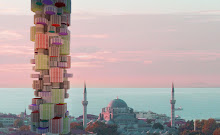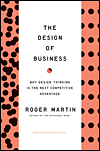I was reading in the LA Times the other day an article on the rise of attacks against women in southern India perpetrated by the Hindu Taliban. The group of men in Mangalore who committed these acts of violence claimed that they did it out of a sense of duty and obligation to safeguard their culture and to counter the growing independence of women. How sad, I thought, as a woman, my independence of thought and education are invaluable to my being. I then thought about the Taliban in Afghanistan. Under their rule (from 1996-2001), women and girls were forcibly and violently silenced and made invisible in the public sphere. Girls were banned from receiving any education and women were barred from seeking employment. Girls who persisted in seeking out an education even in the shadows, even as recent as last fall, were attacked and sprayed with acid, permanently disfiguring them. (The sad irony is that Afghanistan was once a very progressive society in advancing the rights of women). Earlier this year, the Taliban fire bombed 180 schools in Swat Valley in the Northwest Frontier of Pakistan as part of their command to terminate the education of 125,000 young women.
Keeping women and girls uneducated may force them to be more dependent and thereby easier to control and it helps in perpetuating the belief that women are merely belongings. However, this extremely ignorant strategy is also one of the biggest barriers to social advancement and economic growth around the world. So much so, that in May of 2008, investment bank, Goldman Sachs said that it would invest US$100 million in the education of 10,000 women from developing countries.
Even Lawrence Summers, the current head of President Barack Obama's National Economic Council and the ex-president of Harvard University, who was fired from Harvard University for suggesting that women lack the natural ability and aptitude to succeed in math and science, wrote a comprehensive report as chief economist at the World Bank that stated that "hard statistical evaluations fairly consistently find that female education is the variable most highly correlated with improvements in social conditions." In his seminal paper titled "Investing in All People" (1994), Summers argues that "the benefits of education have multiplier effect because they empower women to bring about other necessary changes" - on health issues, social structure, the environment and the economy.
Gene Sperling, the former economic advisor to President Bill Clinton, also pointed out that two respective World Bank studies from 1999, clearly argue that reducing the education gender gap in south Asia and Sub Saharan Africa would have led to faster economic growth between 1960 and 1992 and dramatically improved the health of women and children, significantly reducing infant mortality.
As the evidence continues to build, the cost of not educating girls seems just too high a price to pay. There is nothing moral, cultural or religious in depriving girls the right to learn. The Taliban who claim to be propagating Islam seem to have overlooked that one of the first commands the Angel Gabriel gave the Prophet Mohammad was to "Read...Read, in the name of Thy Lord...." Well, it is rather tough to learn how to read when your school has been burnt down and you are a girl who has been threatened and blinded by acid - punished for your innate desire to learn.
So, to all those people who relentlessly and violently prevent girls from going to school - why are you so intimidated by education? Is it social progress you fear or economic development or improved health conditions?
 Young girls in Djibouti (only 40% of girls go to primary school)
Young girls in Djibouti (only 40% of girls go to primary school)Image taken from http://hamptonroads.com/node/67441
For more on the information cited in this article refer to: "The New Class Struggle" by Caroline Daniel





































